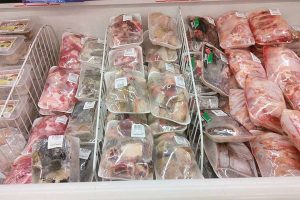
Meat importers confirm delayed MAV quota distribution by DA
MEAT IMPORTERS said the government has not started apportioning quotas out of the minimum access volume (MAV), with traders not receiving any allocations in 2024.
In a Feb. 26 letter addressed to Agriculture Secretary Francisco P. Tiu Laurel, Jr., the Meat Importers and Traders Association (MITA) said the quotas should have been released during the first week of January.
“While the protection of local producers is well intended, we would point out that the objective of the MAV is in fact to introduce competition,” MITA President Jesus C. Cham said.
Citing a meeting with the MAV Advisory Council, Mr. Cham added that the Department of Agriculture (DA) intended to suspend the quota for corn entirely, while the quota for pork will be reallocated to give processors a larger share compared to the traders.
He said the council had recommended proceeding with MAV quota distribution in 2024.
“MITA strongly urges DA to allow (the MAV Secretariat) to proceed with the distribution of the Beginning Year Pool,” he said.
He added that any changes to the guidelines should follow due process, which includes consultations, a regulatory impact assessment, finalization, and presentation to the advisory council and the management committee for approval.
“Proper notification should then be made to the WTO and our trading partners. The current MAV year should carry on as usual, and new guidelines, if approved, can come in the next MAV year,” Mr. Cham said.
The DA had proposed the suspension of the MAV for pork and corn to lower dependence on imports.
MAV allows trading partners guaranteed market access, subject to volume quotas. The MAV system is a feature of the World Trade Organization’s (WTO) trading system.
The Philippines has committed to admit 54,210 metric tons (MT) of pork and 216,940 MT of corn.
“A 60% or 90% reduction would render (imports) not economically feasible to utilize or even unusable,” he said.
He added that smaller businesses and their clients would be deprived of MAV products, which may make their goods less competitive when compared to bigger businesses.
“Removing (or) reducing the quota volumes is anti-competitive. Instead of shielding producers from competition, we should strive to make them more competitive,” Mr. Cham said.
The British Chamber of Commerce of the Philippines has raised concerns regarding the DA’s proposal to suspend the MAV for the two commodities. It warned that the move could affect supply and trade agreements. — Adrian H. Halili



